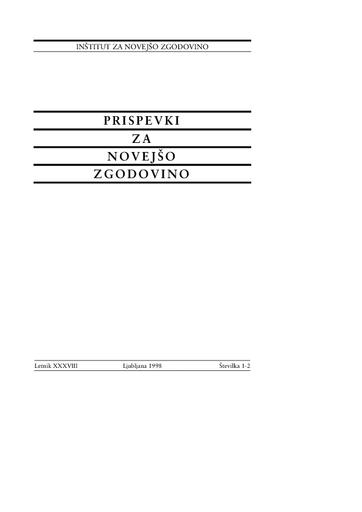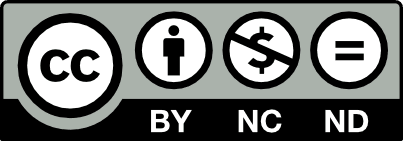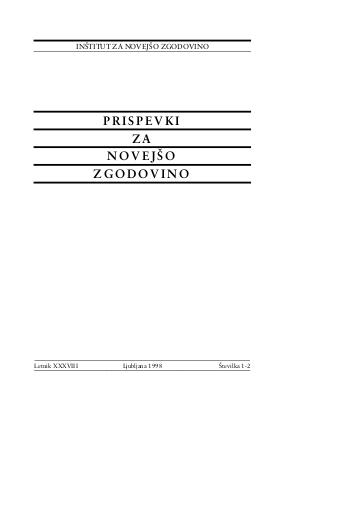/
Periodicals
/
Prispevki za novejšo zgodovino
Yugoslav Federalism and the 1953 Constitutional Law

Author(s):Mateja Režek
Co-author(s):Jasna Fischer (odg. ur.)
Year:1998
Publisher(s):Inštitut za novejšo zgodovino, Ljubljana
Language(s):slovenščina
Type(s) of material:text
Rights:

This work by Mateja Režek is licensed under Creative Commons Attribution-NonCommercial-NoDerivs 4.0 International
Files (1)

Name:Prispevki_za_novejso_zgodovino_1998_1-2.pdf
Size:2.35MB
Format:application/pdf
Permanent link:https://hdl.handle.net/11686/file219
Description
On the basis of archive sources and professional literature, the author deals with the 1953 Constitutional Law from the viewpoint of Yugoslav federalism and the national question. Special attention is dedicated to the abolition of the Council of Nationalities, as an independent chamber in the Federal Assembly, and the introduction, in its stead, of the Producers' Council which was class rather than nationality based. The author concludes that the Constitutional Law drastically limited the rights of individual nationalities and federal units, which had been, at least formally, guaranteed by the 1946 Constitution.
Metadata (12)
- identifierhttps://hdl.handle.net/11686/1949
- title
- Jugoslovanski federalizem in ustavni zakon leta 1953
- Yugoslav Federalism and the 1953 Constitutional Law
- creator
- Mateja Režek
- contributor
- Jasna Fischer (odg. ur.)
- subject
- ustavni zakon
- 1953
- Jugoslavija
- federalizem
- nacionalno vprašanje
- description
- On the basis of archive sources and professional literature, the author deals with the 1953 Constitutional Law from the viewpoint of Yugoslav federalism and the national question. Special attention is dedicated to the abolition of the Council of Nationalities, as an independent chamber in the Federal Assembly, and the introduction, in its stead, of the Producers' Council which was class rather than nationality based. The author concludes that the Constitutional Law drastically limited the rights of individual nationalities and federal units, which had been, at least formally, guaranteed by the 1946 Constitution.
- Avtorica na podlagi arhivskih virov in strokovne literature obravnava ustavni zakon iz leta 1953 s stališča jugoslovanskega federalizma in nacionalnega vprašanja. V ospredje postavlja ukinitev zbora narodov kot samostojnega doma zvezne skupščine in uvedbo zbora proizvajalcev, katerega podlaga ni bil nacionalni, temveč razredni element. Avtorica ugotavlja, da so bile z ustavnim zakonom močno omejene pravice posameznih narodov oziroma federalnih enot, ki jim jih je vsaj formalno zagotavljala že ustava iz leta 1946.
- publisher
- Inštitut za novejšo zgodovino
- date
- 1998
- type
- besedilo
- language
- Slovenščina
- isPartOf
- rights
- license: ccByNcNd
Citirano v (1)
| Tipologija | Avtor(ji) | Naslov | Kraj | Založba | Leto |
|---|---|---|---|---|---|
| 1.01 Izvirni znanstveni članek | Režek, Mateja | "Jugoslovanstvo" in mednacionalni odnosi v Jugoslaviji v petdesetih letih 20. stoletja | Ljubljana | Inštitut za novejšo zgodovino | 2005 |
